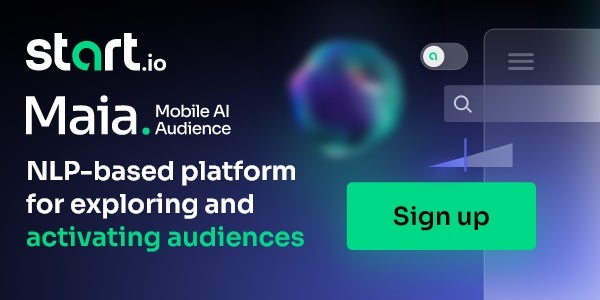Back in 2016, Apple introduced search ads for the first time. Since then, it has transformed this new source of revenue into a growth strategy. As a result, today, the ad tech industry is no longer a titans’ dual between Google and Meta. Apple is also taking a prominent position.
Riding the privacy wave, in mid-2021, Apple introduced ad tracking for mobile apps. The iOS 14.5 update enforced active permission for mobile app advertising tracking. The change cost Meta $10 billion in lost advertising revenue. Meta is not the only company affected, although it was one of the most vocal about it (ironically, by placing print ads in The Washington Post, The New York Times and The Wall Street Journal).
Meanwhile, Apple’s search ads business soared, signifying the beginning of a broader ad tech move. Reportedly, Apple is planning to place ads in native iOS apps (such as Apple Maps) and is expected to launch its own DSP (demand-side platform).
Building a business model based on an authentic user concern (privacy) seems like a brilliant move by Apple, effectively killing two birds with one stone. Yet marketers have lost access to a key source of data in the process. They are now concerned about implementing new tools and methods that will restore their capabilities.
The introduction of the new advertising tracking by Apple was probably one of the factors that pushed Google to focus on the Google Privacy Sandbox, which is already deep into testing. The Sandbox initiative consolidates third-party cookie deprecation and mobile app advertising ID deprecation. By 2025, both third-party cookies and mobile app ads should be fully gone.
Before these changes, marketers and brands had full visibility into their mobile marketing funnel, supporting a deep understanding of their audiences. But now, as new legislation (ADPPA) and the implementation of both Apple app tracking transparency and the Google Privacy Sandbox gradually take effect, they’re operating in a hybrid environment: while some relics of cookies remain, the need to operate without them is obvious.
Just as in the automobile industry, the transition to fuel alternatives isn’t happening overnight. For example, moving to all electric sounds promising, but is limited in scale (mileage). Hybrid vehicles are bridging the gap.
Similarly, marketers should develop a hybrid strategy using both ID-driven and fully anonymized solutions. The assumption that user-targeting in the anonymized “new” era will be identical to that of the non-anonymized current era is not probable. Marketing budgets are expected to increase year-over-year and shift more into mobile and CTV. Yet with fewer methods to target users, our industry must adapt and form new ways to achieve our goals.
Investing in one targeting method won’t yield the results and accuracy to which we’ve grown accustomed. A more holistic solution that encompasses alternative identifiers based on hashed emails, contextual targeting and on-device, ID-less segmentation would provide the closest results in terms of granular targeting and accuracy at scale.
Given the current and upcoming changes in regulations and updates in mobile operating systems, the way forward is to gradually roll in additional identifiers and on-device targeting in addition to MAID and cookie targeting. We might not have a definite deadline for the deprecation of MAID and the cookie, but it’s only a matter of time before they become scarce in our landscape.
We at Start.io are taking action by developing a comprehensive set of segmentation and targeting features in addition to our existing first-party, MAID-based audiences. By developing and using capabilities like natural language processing and AI to build audiences on devices in real time, our targeting can be just as relevant. Our platform encapsulates the user segment on the device level and shares it without any identifier or utilizing a universal ID.
Marketers: Stay tuned! Your playbook is being rewritten. You are expected to reevaluate your current methods and solutions. Don’t wait until the last minute, but embrace innovative solutions and new technologies that will become the only way to deliver results.
For more articles featuring Ravit Ross, click here.
















